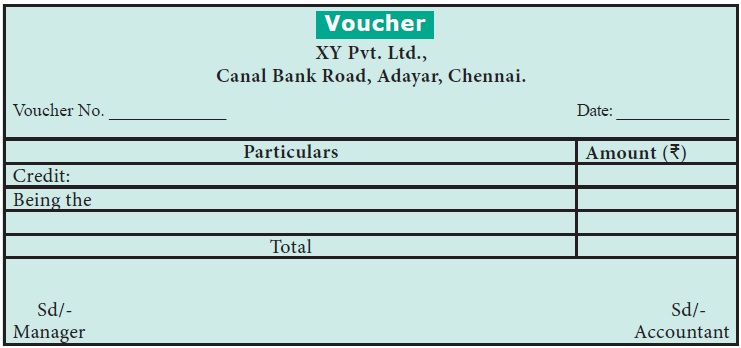Meaning, Types, Example | Auditing - Voucher | 11th Auditing : Chapter 6 and 7 : Vouching of Cash Transactions
Chapter: 11th Auditing : Chapter 6 and 7 : Vouching of Cash Transactions
Voucher
Voucher
Meaning
Documentary evidence in support of any business
transaction is called as a Voucher. It may be a receipt, invoice, bill, cash
memo, bank pay-in-slip, counterfoil of a cheque, correspondences, agreements,
resolutions passed in the meeting etc. Voucher gives information about the
nature and source of the transaction, its value and authority. It substantiates
the entries in the book of accounts and confirms the genuiness of the
transaction. All vouchers relating to the business transactions should be
carefully preserved and properly filed.
Types of Voucher
There are two types of Voucher. They are -
1. Primary Voucher
2. Collateral Voucher
1. Primary
Voucher: Primary voucher refers to the
written evidence in original. Examples of primary voucher are purchase invoice,
cash memo, bills, confirmation of balances, bank statements, contracts, etc.
2. Collateral
Voucher: When the original voucher is
not available, copies thereof are produced in support or as subsidiary to
remove suspicion and to satisfy the auditor, such a voucher is known as
Collateral Voucher. Examples of collateral voucher are copies of sales invoice,
receipts, copy of resolution passed in a meeting etc.

Examples of Vouchers
The following are some of the
examples of vouchers.
Cash Receipts: Vouchers regarding cash receipts include - carbon copies
of receipts, contracts, minutes, correspondences, counterfoils, etc.
Cash Payments: Vouchers in connection with cash payments include
- invoices, bills, demand notes, wage sheets, salary register, counterfoils,
agreements etc.
Purchases: Invoices, Goods inward book, Copies of orders placed,
Correspondence, etc. can be cited as examples of vouchers for purchases.
Sales: Copies of invoice, Orders received, Goods Outward Book, Correspondence, etc., are some of the examples of vouchers related to sales.
Related Topics